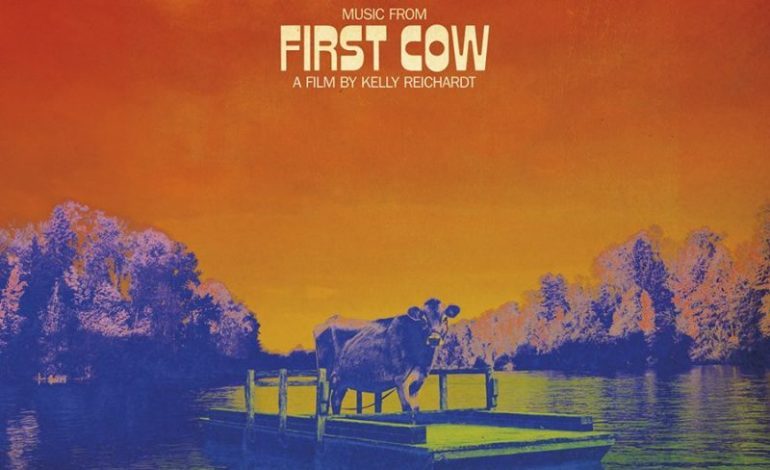

Meditative, ambient film score
William Tyler’s score to First Cow reflects all the lush Pacific Northwest landscape seen in the new movie First Cow directed by Kelly Reichardt. On one hand, the untamed wilderness is beautiful and bountiful but on the other hand, it is hostile for those trying to make their life there. The ambient score recalls the beauty of the frontier permeated by the tension of encroaching settlement, but uses simple melodies and sounds to subtly make this point.
The film follows two early inhabitants of the Oregon Territory as they enterprise stealing milk from a cow belonging to a wealthy landowner. Set against the majestic, unperturbed Pacific Northwest circa 1820, the tension between humans encroaching on the land juxtaposed against the wild expanse of the territory makes for a perfect background on which to explore such a focused narrative. William Tyler employs the same staging of the intimate against the immense in his score.
“First Cow in the Territory” begins the album by placing it in the realm of country music. A lone halting banjo picks away as some chatter and dialogue from the film plays. The wandering banjo is both a familiar sound and an indication of how remote we are. “An Opening” introduces a melody whose spare refrain creeps up throughout the album. The song slowly swells around the single melody playing by a single instrument but never climaxes, instead, the melody fades away into the sound of chirping birds.
“Cookie’s Theme,” named after one of the protagonists, is a little more upbeat, but its melody is tinged with just enough melancholy to make you wonder more about Cookie. What would drive someone all the way out to the edge of the continent? Alas, Tyler’s score withholds the answer but continues to invite questions about the film.
William Tyler is known as an indie-folk artist. First Cow is the first film he has scored, but he brought much of his style from his earlier work to the album. He tends to write experimental instrumental tracks for himself on guitar which demonstrate his technical skill and penchant for a rich and meditative sound.
Overall, the album suggests more than it informs. It has a sparse beauty tempered by a tension. Sometimes the songs feel lonely since most rely predominantly on a single instrument carrying the melody with little other accompaniment, but the simplicity of its sound is one of the album’s strengths. The album is meant as one element contributing to the narrative, and the tone and atmosphere it provides surely deepen the experience of the film.
There are no lyrics—though the occasional film dialogue shows up—but several of the songs contain the natural sounds of the forest. The birds chirping on “An Opening” which bleed into “Cookie’s theme,” the sound of gently rushing water on “Arrival” and “River Dreams” and soft footsteps on the soil in “The Separation” all contribute to the ambient feeling of the album but are hardly necessary to capture the feeling of the forest in the music. The music has a certain innocence to it, with simple repeating melodies and lush but sparse accompaniment, though it is also emotionally complex as if something foreboding lay just beyond the reach of the music.
